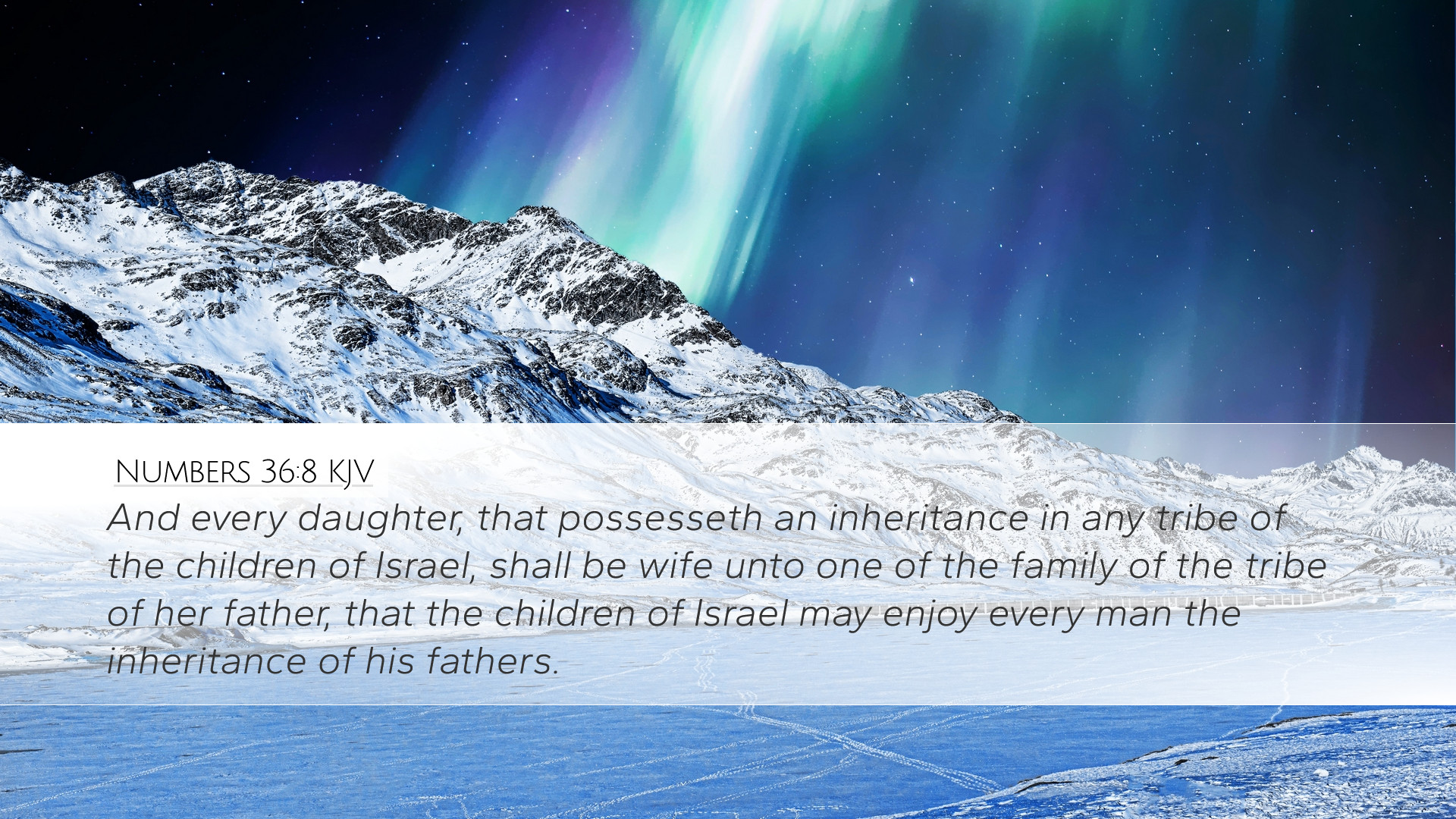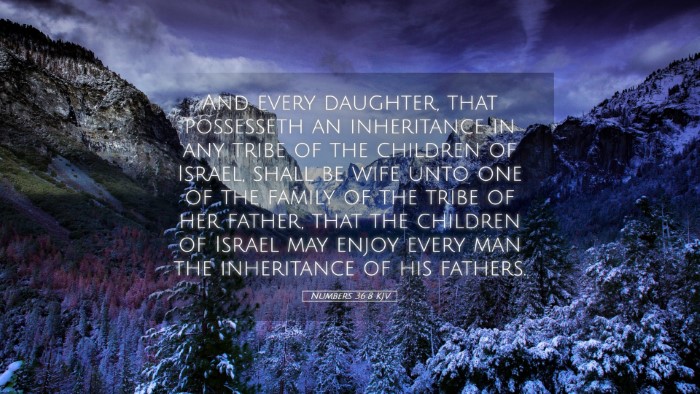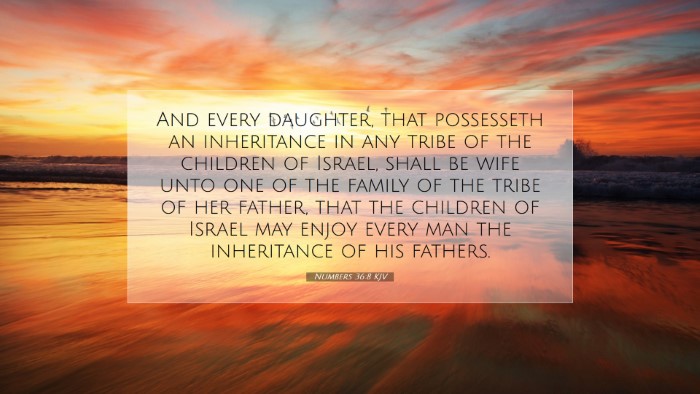Commentary on Numbers 36:8
Bible Verse: "And every daughter that possesseth an inheritance in any tribe of the children of Israel shall be wife unto one of the family of the tribe of her father, that the children of Israel may enjoy every man the inheritance of his fathers."
Contextual Overview
This verse arises in the context of the regulations concerning the inheritance laws given to the Israelites. After the conquest of Canaan, the land was to be divided among the tribes of Israel, and specific attention was paid to the inheritance rights of both sons and daughters. The chapter centers around the daughters of Zelophehad, who petitioned Moses for their inheritance rights, which was granted, leading to important implications for the Israelite community.
Insight from Matthew Henry
Matthew Henry highlights the significance of this verse in affirming the rights of daughters to inherit land. He notes that this provision ensures that women are not left destitute and that families remain connected through the tribes. By marrying within their own tribe, the daughters would preserve the tribal inheritance and maintain the integrity of familial lineage within the broader context of Israel's covenantal community.
- Preservation of Identity: According to Henry, the directive serves to protect tribal identity and inheritance, ensuring that land remains within the original family lineage.
- God's Wisdom: The principles illustrated in this verse reflect the wisdom of God in providing order and stability within the society of Israel, showcasing His concern for all members, including women.
Insights from Albert Barnes
Albert Barnes provides additional reflections on the implications of this law. He indicates that allowing daughters to marry within their tribes strengthens social ties and upholds traditional structures. He elaborates that this legislation was divinely inspired to prevent the fragmentation of the land inheritance—important for the socio-economic stability of Israel.
- Divine Order: Barnes emphasizes that these directives exist to maintain divine order and ensure that each tribe retains its allocated parcels of land without external dilution.
- Continuity of Family Lineage: The marrying of daughters within their tribe is seen as a safeguard for the lineage and inheritance systems established by God Himself.
Perspectives from Adam Clarke
Adam Clarke's commentary further explores the cultural implications of this law. He notes that in the ancient Near East, familial ties and land ownership were critical to identity and survival. By ensuring that daughters married into their own tribe, Israel establishes a structure that honors traditions while adapting to new realities where daughters could inherit lands.
- Social Responsibilities: Clarke asserts that this law not only protected inheritances but also highlights the social responsibility of individuals within the community to ensure care and support among family members, transcending gender roles traditionally observed.
- God's Justice and Care: The ruling mirrors divine justice, ensuring that no member of Israel, regardless of gender, is marginalized in matters of inheritance, thus maintaining the integrity of God’s covenant with His people.
Theological Implications
This particular instruction reflects several theological themes that are still relevant for contemporary readers:
- Covenant Community: The instructions showcase God's commitment to maintaining a covenant community where every individual has a place and purpose.
- Equity and Justice: The inclusion of daughters in matters of inheritance shines a light on God’s character as just and equitable, challenging societal norms that prioritize male lineage exclusively.
- Hope and Restoration: In today’s context, these verses can be understood as a foreshadowing of a family structure that God desires for His people—a model that encompasses hope and restoration, caring for all members.
Application for Contemporary Readers
For pastors, students, theologians, and Bible scholars, Numbers 36:8 serves as a reminder of God’s inclusive nature and desire for justice within community structures. Here are some points of application:
- Promoting Justice: Ministry leaders are encouraged to advocate for justice and inclusion within their communities, drawing inspiration from the biblical approach to inheritance and identity.
- Encouraging Women: There is a call to empower women within the church, acknowledging their roles and contributions in a faithful community marked by equity.
- Reflecting on Heritage: Scholars might consider exploring how these ancient laws inform current discussions about gender, identity, and inheritance in both faith communities and wider society.
Conclusion
Ultimately, Numbers 36:8 provides profound insights into the nature of God’s law and its implications for our understanding of inheritance, community, and gender roles within biblical Israel. The combined perspectives of notable commentators like Matthew Henry, Albert Barnes, and Adam Clarke enrich our understanding and application of these truths, inviting ongoing reflection and action towards equity, justice, and community cohesion.


